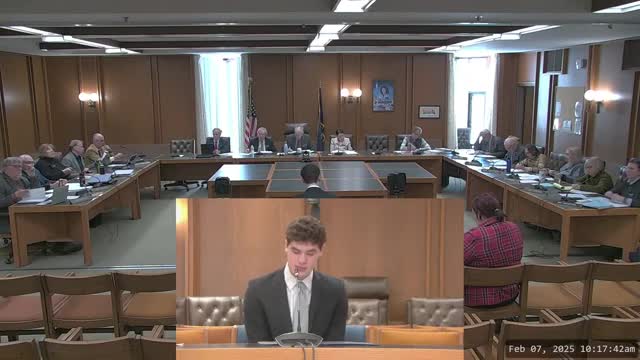Lawmakers weigh bill to require State Board of Education to report unfunded financial impacts of rules
Get AI-powered insights, summaries, and transcripts
Subscribe
Summary
HB 718 would require the State Board of Education to report the financial impact on school districts when rules exceed state or federal minimum standards. Sponsors said the aim is transparency; the board chair said the board already seeks stakeholder input but lacks capacity to produce precise dollar estimates for every proposed rule.
The committee heard HB 718, which would require the State Board of Education to report the unfunded financial impact on local school districts of any board rule that exceeds state or federal minimum standards.
Sponsor Representative Rick Ladd said the intent is transparency: rules beyond statutory or federal minimums can create local costs that are not covered by state adequacy or other aid formulas. Ladd pointed to existing reporting forms and ED‑1100 series rule charts that identify where a state rule exceeds statutory or federal minima and asked the board to add financial impact information so lawmakers and local officials can judge cost effects.
State Board Chair Drew Klein told the committee the board strives not to exceed statutory authority and already solicits stakeholder feedback during the rulemaking process, but it lacks in‑house economists or fiscal analysts to provide precise dollar estimates for every rule. "We don't have the capability to do that," Klein said, noting the board hears public comment and tries to identify burdens during hearings. Witnesses including nutrition, parent and education groups argued that simple fiscal impact indicators or more detailed explanatory notes would help JELCAR and lawmakers assess consequences and potential funding needs.
Committee members suggested alternatives to a single dollar estimate: rule forms could include a narrative description of which districts or programs would bear costs, a typical per‑student cost range, or an explanation that costs are indeterminable rather than absent. Members asked whether JELCAR and DOE already collect partial cost signals and how to avoid imposing burdensome new requirements on agency staff. The hearing closed with members directing staff to refine the bill language.
